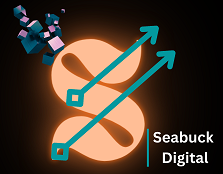Introduction:

In today’s digital age, social media has become an essential tool for businesses of all sizes to reach their target audience and expand their online presence. With over 3.8 billion active social media users worldwide, it’s no surprise that businesses are leveraging these platforms to grow their brand and increase their bottom line.
But with so many social media platforms available, each with its own unique features and benefits, it can be overwhelming for businesses to know where to start. That’s why we’ve put together this comprehensive guide on how to effectively use social media for business.
Whether you’re a small business just starting out or an established brand looking to revamp your social media strategy, we’ve got you covered. In this guide, we’ll cover everything you need to know to create a successful social media strategy, including:
- Setting clear social media goals
- Choosing the right social media platforms
- Creating compelling content
- Engaging with your audience
- Measuring your success
So, let’s dive in and learn how to effectively use social media for business!
A: Setting Clear Social Media Goals

Before you can start effectively using social media for business, it’s important to set clear goals that align with your overall business objectives. Here are some questions to ask yourself when setting social media for business goals:
- How do you intend to utilize social media to achieve your objectives?
- Who is your target audience?
- Which social media platforms do they use?
- How will you measure success?
Once you have a clear understanding of your social media for business goals, you can start creating a strategy that will help you achieve them.
B: Choosing the Right Social Media Platforms

Not all social media platforms are created equal. Each platform has its own unique features and benefits, and choosing the right platform(s) for your business can make all the difference. Here are some factors to consider when choosing social media platforms for your business:
- Your target audience: Where does your target audience use up their time online?
- Platform features: What features does each platform offer, and how can they benefit your business?
- Industry: Are there any industry-specific platforms that your business should be on?
- Time and resources: How much time and resources can you allocate to managing your social media presence?
Some of the most popular social media platforms for businesses include Facebook, Twitter, Instagram, LinkedIn, and YouTube. Depending on your business goals and target audience, you may choose to focus on one or more of these platforms.
C: Creating Compelling Content

Once you’ve chosen your social media platforms, it’s time to start creating content that will engage your audience and drive traffic to your website. Here are some tips for creating compelling social media content:
- Know your audience: What kind of content will resonate with your target audience?
- Use visuals: Visual content, such as images and videos, tends to perform better on social media than text-only content.
- Be consistent: Maintaining consistency is crucial in establishing a robust social media presence. Ensure you post content at regular intervals to keep your audience engaged.
- Tell a story: Use storytelling to create emotional connections with your audience and showcase your brand’s personality.
D: Engaging with Your Audience

Social media is a two-way conversation, and it’s important to engage with your audience to build relationships and foster loyalty. The following are a few methods to interact with your audience through social media:
- Respond to comments and messages: Respond to comments and messages in a timely and friendly manner to show your audience that you value their input.
- Participate in conversations: Join relevant conversations on social media to increase your visibility and show your expertise in your industry.
- Use social listening tools: Monitor social media for mentions of your brand and industry keywords, and respond to any relevant conversations.
- Encourage user-generated content: Encourage your audience to share their own content using branded hashtags, and showcase their content on your own social media channels.
E: Measuring Your Success

Measuring your social media success is crucial to understanding what’s working and what’s not, and to adjust your strategy accordingly. The following are a few indicators to keep an eye on while evaluating the effectiveness of your social media strategy:
- Follower growth: Track the growth of your social media followers over time.
- Engagement: Measure the engagement rate of your posts (likes, comments, shares, etc.) to see which content performs best.
- Website traffic: Track how much website traffic is generated from your social media channels.
- Conversions: Measure how many social media followers convert into customers or leads.
By tracking these metrics, you can see what’s working and adjust your social media strategy accordingly to optimize your results.
F: Conclusion
In today’s digital age, social media is an essential tool for businesses to reach their target audience and grow their brand online. By setting clear goals, choosing the right platforms, creating compelling content, engaging with your audience, and measuring your success, you can create a successful social media strategy that drives results for your business.
Bear in mind that social media is an ever-changing terrain, and therefore it is crucial to remain abreast of the latest trends and best practices to maintain a competitive edge. By following the tips and strategies outlined in this guide, you’ll be well on your way to effectively using social media for your business.
FAQs:
Can social media really help my business?
Yes! Social media is a powerful tool for businesses of all sizes to reach their target audience, build brand awareness, and drive traffic to their website.
What are the criteria for selecting the most suitable social media channels for my business?
Consider your target audience, platform features, industry, and time/resources available when choosing social media platforms for your business.
How often should I post on social media?
It is essential to have a steady and reliable presence on social media. Try to post content at regular intervals to keep your audience engaged.
How can I measure the success of my social media strategy?
Track metrics such as follower growth, engagement, website traffic, and conversions to measure the success of your social media strategy.
Read More Articles on our Blog section

